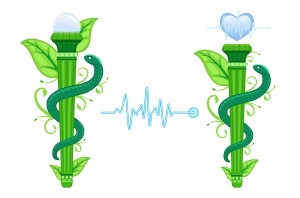Summer means longer days, warmer weather, and having to deal with mosquitos. Recently, I decided to explore whether the plant Citronella really does work. Before we explore the evidence, it is important to also discuss why people are turning to this plant as opposed to your typical chemical bug sprays.
Health Concerns of DEET
Within recent years, DEET – based mosquito repellents have gotten a bad – rap for the potential harm that they may cause. Of note are the different case reports that exist where individuals may have been harmed from their use. The harmful effects range from mild irritation to death. Ingestion could cause death; and dermal exposure has caused death in 8 cases over 40 years, psychological effects (hallucinations, severe agitation, weakness, and incoherency), and heart problems to infants born to pregnant women who used DEET – based bug repellant.
Though the above studies were case reports only, and do not necessarily apply to all individuals, they are still important to consider. In 2001, a study was done among pregnant women who used DEET versus those who did not. In the study, they found that the DEET did cross over the placenta, but no adverse effects were seen at birth or at 1 year of age.
Does Citronella Work?
Upon reviewing several studies, each had a varied time that they noted that citronella was effective for. In general, citronella could last from 1-8 hours. Citronella alone was far less effective than citronella in combination with vanilla. In addition to adding vanilla, it was noted that citronella in combination with thyme, basil, and vanilla; was just as effective as DEET based bug repellants, lasting approximately 8 hours in total.
Have you benefitted from reading this blog? Know someone that would benefit as well? Share, Like, Comment, or Tweet this article, and let me know what you think.
Some of the information provided above may not be appropriate for everyone, please consult with your doctor before trying any of the above. If you are interested in Naturopathic Medicine and wanting a different approach to your health care needs, contact Elisha Cook via the contact portion of this website.
Source:
http://onlinelibrary.wiley.com/doi/10.1111/j.1365-3156.2011.02781.x/full
http://www.atsdr.cdc.gov/consultations/deet/health-effects.html


 This recipe is for a “rub” that I add to basically any vegetables I might be baking or barbequing. To add a bit more “kick” I may add an equal part of cayenne or chilli powder to it. Enjoy!
This recipe is for a “rub” that I add to basically any vegetables I might be baking or barbequing. To add a bit more “kick” I may add an equal part of cayenne or chilli powder to it. Enjoy!

